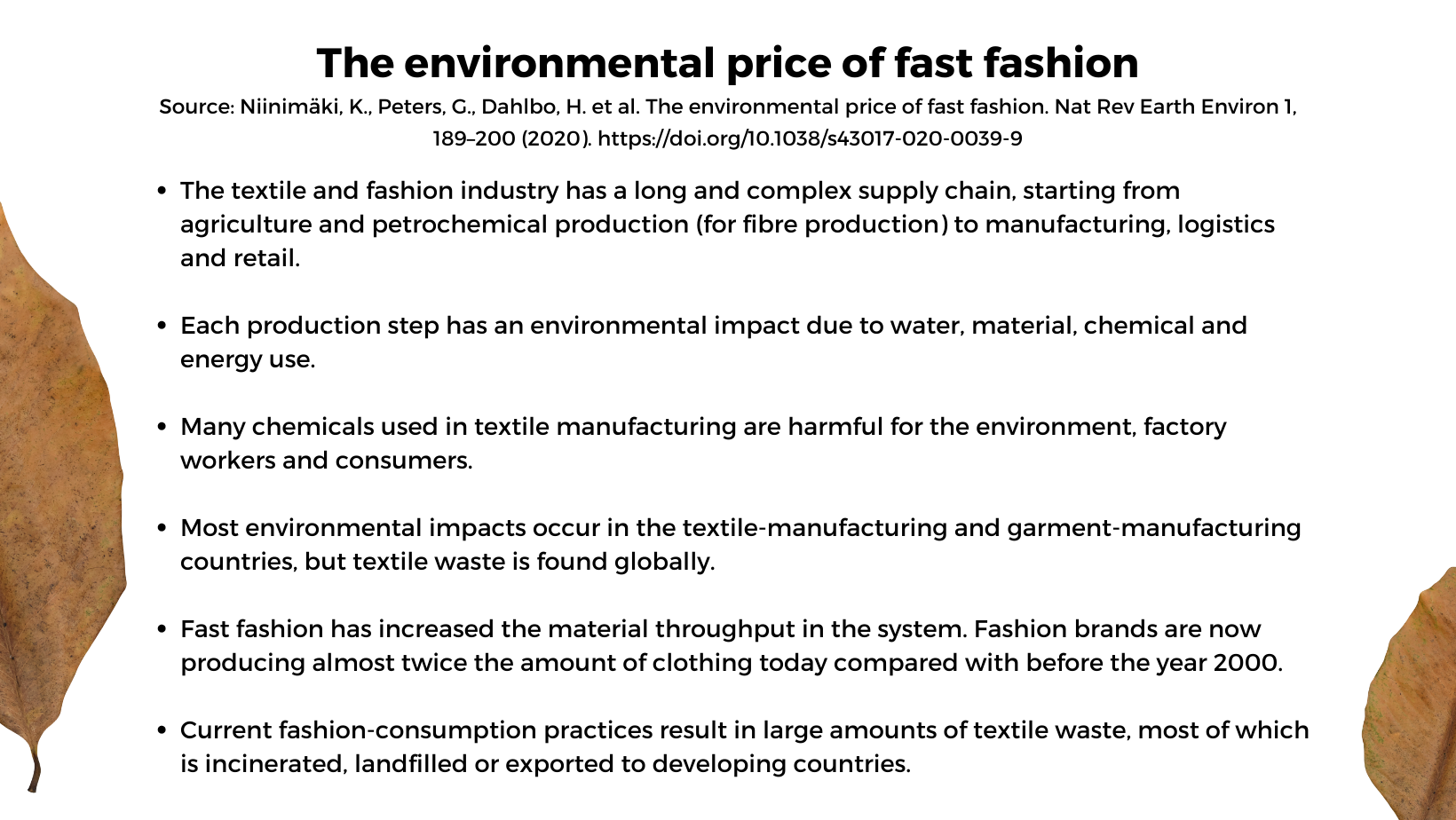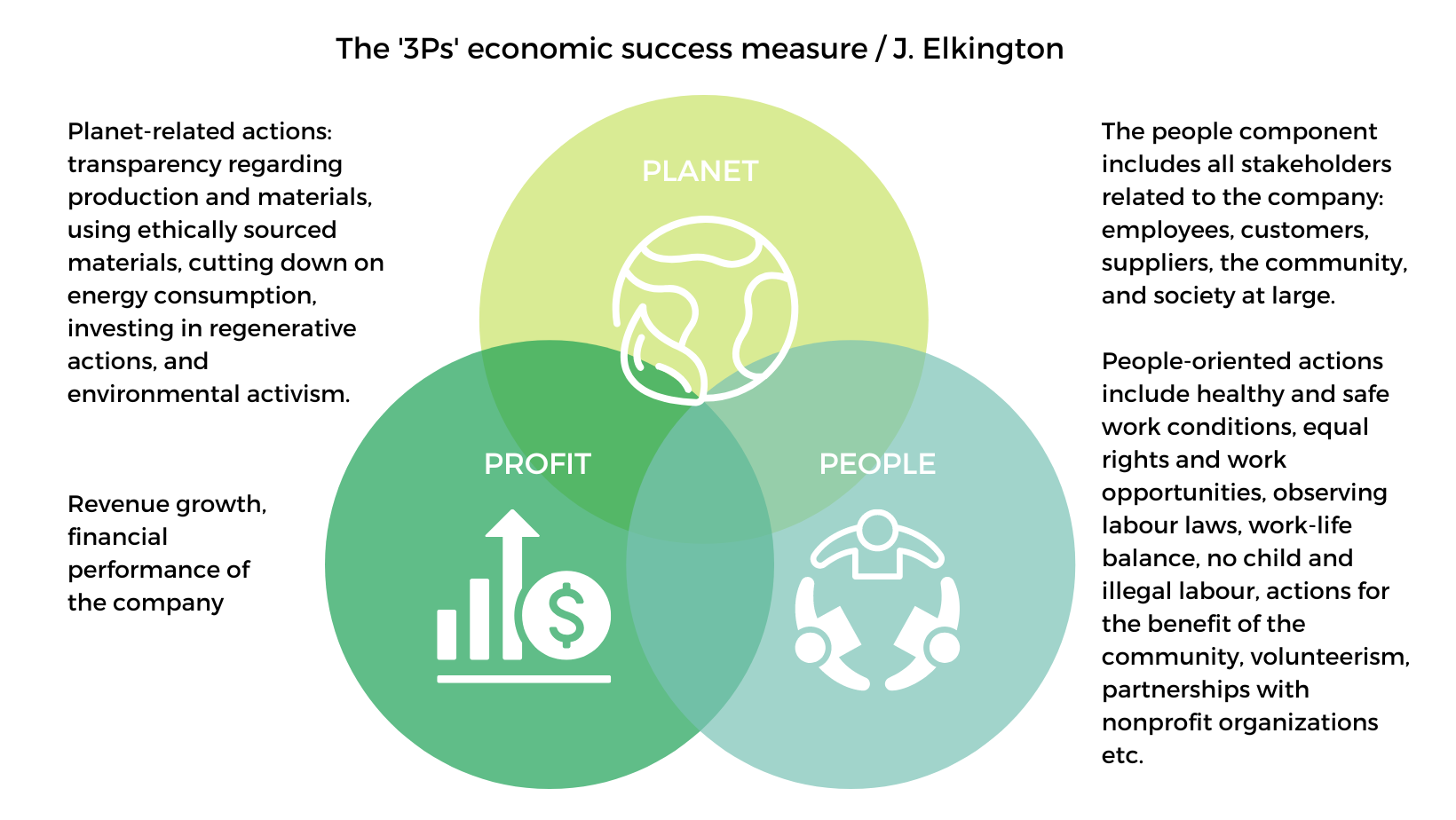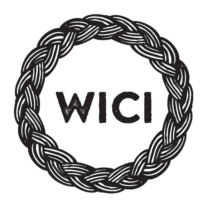How business can combine economic success with environmental and social responsibility? How can companies in the fashion industry innovate, create fashion and be sustainable at the same time? The TECOFASH consortium was established by seven partners (including the WICI Association) from five EU countries whose sphere of activity is concerned with entrepreneurship, fashion and the textile industry. We have combined our experiences and expertise to create innovative learning material for small enterprises and aspiring entrepreneurs in the fashion industry to operate in a more sustainable and digitally advanced way. We will produce all of that and release it for free on an open-access basis thanks to the generous funding from the Erasmus+ Programme.
What is wrong with the fast fashion industry?
The textile and clothing sector is among the most important industries in the EU, standing out on the global market with high quality and heritage, but also innovation in production processes and products. Based on the latest available data from 2017, the textile and clothing sector in the EU alone is estimated to directly employ nearly 1.7 million people, in over 171,000 companies, with a turnover of EUR 178 million (Statista, 2018).
However, fashion is one of the most polluting industries on a global level. In the last 15 years, clothing production has doubled. Large amounts of nonrenewable resources are extracted to produce clothes that are often used for only a short period. The mass production process poses major threats to the environment, such as water contamination (use of chemicals and dyes), transportation costs, and toxic fibres which end up in landfills or as sea waste. The industry has also a negative impact on local communities and society at large. While some changes have been applied, the sustainable fashion industry is still a project to build.
The TECOFASH consortium wants to raise awareness about the environmental and social costs of fashion production. We will inform, educate and provide collaboration opportunities for young and experienced fashion business owners to build profitable companies in harmony with the environment and people. This will be achieved by providing training on alternative business models which prioritize sustainability and change the way business success is defined.

What is the future measure of success?
Facing the growing environmental degradation and socio-economic problems, it becomes self-evident that money cannot be the only measure of business success. Many companies realize that and decide to implement changes in how they see their growth and development. You have probably heard the term corporate social responsibility (CSR). It refers to practices and policies undertaken by corporations intended to have a positive influence on the world. CSR-like policies are also adopted by small and medium companies (SMEs). In TECOFASH we want to show small business owners that they can go even further and redefine the notion of a company’s growth and profit more profoundly. One of the pioneers of thinking of profit beyond money was John Elkington. He suggested that businesses should commit to measuring their social and environmental impact—in addition to their financial performance—rather than solely focusing on generating profit, or the standard “bottom line.” His idea is known as the triple bottom line theory.
“The triple bottom line wasn’t designed to be just an accounting tool. It was supposed to provoke deeper thinking about capitalism and its future.” —John Elkington
Planet, people, profit
The triple bottom line illustrates that if an organization is only focused on profit—ignoring people and the planet—it cannot account for the full cost of doing business and thus will not succeed long term. This is because an Excel sheet with profit and losses does not represent the full picture of the company’s impact. It ignores the influence on almost all the related stakeholders such as employees, customers, suppliers, the community, and the natural environment. Therefore, Elkington’s idea is to expand business success metrics to include three bottom lines: contributions to environmental health, social well-being, and a just economy. These are called “3Ps”: planet, people, and profit.

See the video to uncover the relationship and dependencies between the social, the environmental, and the economic.
TECOFASH – activities
Elkington’s notion of a sustainable business success measure will be the reference point for the activities and materials the TECOFASH consortium is going to produce. We will deliver a research-based e-learning platform for young and experienced entrepreneurs which will help them reskill and transform their business toward sustainable and digitally advanced business. The training programme is oriented towards the following:
- Connecting the companies from the fashion and textile sector with the younger generation, and attracting a new talented workforce to this industry,
- Linking representatives from the sector with training experts,
- Delivering transparent and open-based content, without conditions and free from constraints,
- Focus on the skill gap, such as awareness of the production processes, and the digital and green skills,
- Making full use of digital technologies and virtual collaboration to contribute to the up/reskilling of the sector.
I. Training package on environmental problems resulting from contamination and unsustainable production.
II. Training package on managerial and transversal aspects related to the business models and digital and lean management.
III. FINAL RESULT: Online platform. It will host training packages and a social component that will enhance entrepreneurs’ collaboration.
Study visit to Prato
In April 2023, the consortium organisations met in Prato, Italy. Lottozero/Textile Laboratories, one of the partners, hosted the meeting. We had the opportunity to get to know the premises of Lottozero, an impressive post-industrial space filled with all the historical and modern equipment any fibre artist would dream of!
We visited the Prato textile district, where we saw a post-consumer cloth sorting facility, a wool mill, and the headquarters of Rifo, a local fashion company based on the circular model. For the Wici Association, this study visit was a great learning experience and a highlight of the Tecofash project.
Prato is renowned for its specialisation in wool recycling. Read about it on our blog.







Consortium meeting in Larissa
In November 2023, we travelled to Larissa, Greece, for the final consortium meeting. Our host was our Greek partner, the Institute of Entrepreneurship Development. We had the opportunity to visit Innovation Park JOIST, the headquarters of IED but also an entrepreneurship hub. JOIST is housed in a refurbished industrial building in the centre of Larissa and is a contact point for academic institutions, SMEs, and start-ups interested in development and testing.
Right at the entrance is the Agora Amphitheatre, which takes its name from the main place of assembly in ancient Greek and Roman cities. The visual identification of the building is organised into colour paths on the floor of the building, e.g. yellow path takes you to learning and fun activities.
Among other things, we visited an exhibition space dedicated to the youngest audience, which tells the story of innovation in the historical context of community development. The exhibition space not only showcases the history of innovation but also encourages interactive learning for children. Through engaging displays and hands-on activities, young visitors can gain a deeper understanding of how innovation has shaped their community over time. Additionally, the space offers workshops and educational programs that inspire creativity and critical thinking in the next generation of innovators.









Newsletters
Tecofash results – Online platform
Have a look at the final result of our project! Whether you are a small fashion brand just starting up, an independent designer looking to make their way onto the market, an employee of the fashion industry or a person looking to enter it, the content we have developed is for you! It will allow you to find out more about fashion and sustainability, make better choices for your business and help you build a future in a way that is sustainable both for the planet and its inhabitants. The online platform reflects the above-mentioned training packages I. Environmental and sustainability issues and II. Managerial competences. It also has a social module that helps you connect to other learners. All the content is free of charge, you are welcome to download it or share it. Please mention the name of the project #Tecofash when doing so.
Partners
Association for the Promotion of Old Crafts and Culture “Wici” – Poland
Centre For Education and Entrepreneurship Support – Poland
Chamber of Commerce and Industry in Katowice – Poland
Institute of Entrepreneurship Development – Greece
Lithuanian Apparel and Textile Industry Association Latia – Lithuania
Lottozero Textile Laboratories – Italy
MARKEUT SKILLS SOCIEDAD LIMITADA – Spain
TECOFASH. Strategic Partnership Promoting Education for the Transition of the Fashion Sector Towards Digital and Sustainable Business Models
Project number: 2021-1-PL01-KA220-VET000034636
Project Duration: 01.01.2022 – 01.01.2024
The Tecofash project was funded by the European Union. Views and opinions expressed are however those of the author(s) only and do not necessarily reflect those of the European Union or the European Education and Culture Executive Agency (EACEA). Neither the European Union nor EACEA can be held responsible for them.






You must be logged in to post a comment.